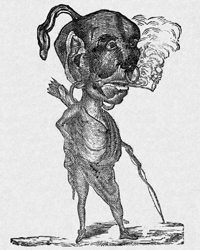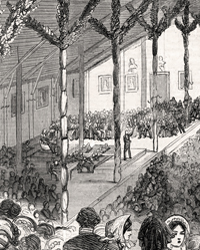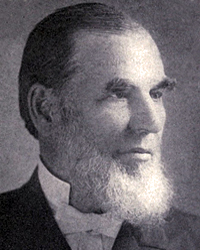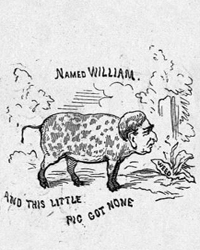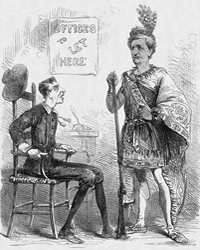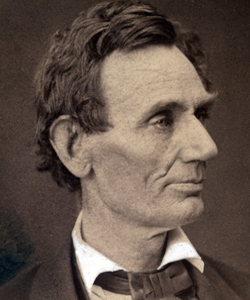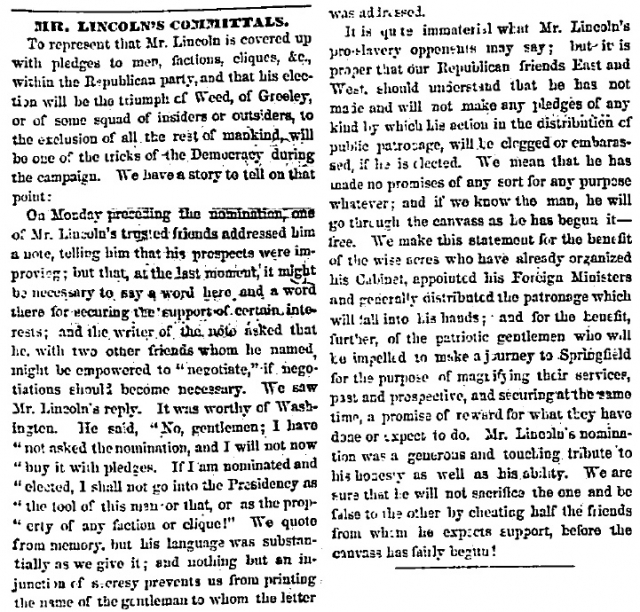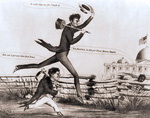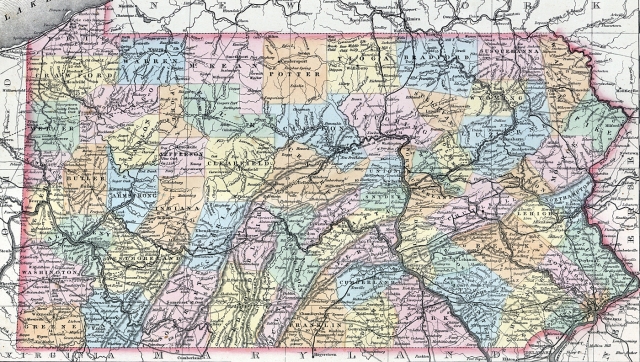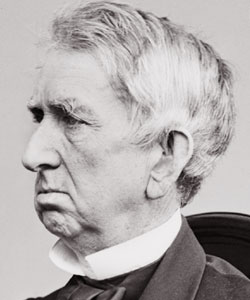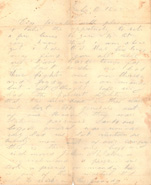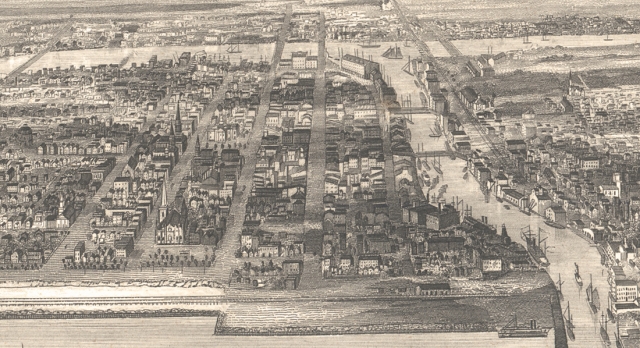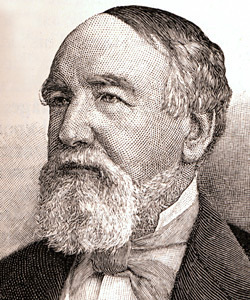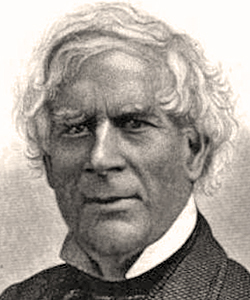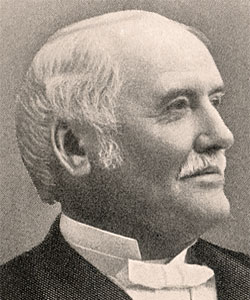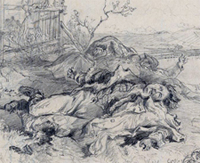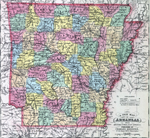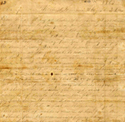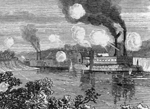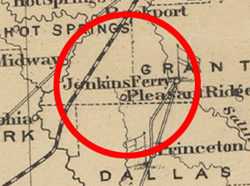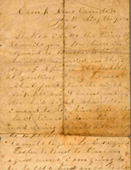"Make No Contracts"
by Michael Burlingame
by Michael Burlingame
During the second night of the 1860 Republican convention, while the Sewardites consumed 300 bottles of champagne in anticipation of their imminent triumph, David Davis and his cohorts barely slept. Henry S. Lane was observed lobbying furiously for Lincoln, especially among the Vermont and Virginia delegations. Lane “asserted hundreds of times that the nomination of Seward would be death to him, and that he might in that case just as well give up the canvass. He did not feel like expending his time and money in carrying on a hopeless campaign, and would be disposed to abandon the contest.” George W. Lawrence of Maine, who boarded at the hotel where the Pennsylvanians were staying, “was incessant in his effort to procure their votes” for Lincoln. Davis wanted to cut a deal with the Pennsylvanians, but the previous day Lincoln had sent a terse message via Edward L. Baker: “Make no contracts that will bind me.”
“Make No Contracts” p. 2
According to Henry C. Whitney, Baker “related that when he read the note to the delegates and workers gathered at the Lincoln headquarters he was greeted with a burst of laughter.” Davis, who guffawed louder than anyone else, said: “Lincoln ain’t here, and don’t know what we have to meet, so we will go ahead, as if we hadn’t heard from him, and he must ratify it.” Davis and Swett negotiated with the leading Cameron operatives, John P. Sanderson and Joseph Casey, “in the wee small hours of Friday morning.” Before the convention met, Sanderson had predicted that Lincoln, unlike other contenders, might be able to carry the Keystone State. Cameron was allegedly offered a cabinet post in return for the votes of the Pennsylvania delegates on the second ballot. The Cameron representatives, wary because their counterparts had no authorization from Lincoln to act, were reassured that the Rail-splitter would never repudiate a promise they made.
“Make No Contracts” p. 3
Whitney’s account of the Cameron bargain has been challenged, but it seems plausible in light of abundant reminiscent testimony. Swett described to a convention delegate “his labors with Cameron,” the “promises he made Pennsylvania on behalf of Mr. Lincoln,” and “the subsequent difficulty he encountered in persuading Mr. Lincoln to carry out the contracts, or ‘bargains,’ as Mr. Lincoln called them.” Swett acknowledged that he had promised to have Cameron appointed to the cabinet if Pennsylvania supported Lincoln on the second ballot. In 1875, Cameron confided to an interviewer: “Lincoln told me that he was more indebted to Judd than any other one man for his nomination, but I told him I thought Davis and Swett did more for him. They bought all my men – Casey and Sanderson and the rest of them. I was for Seward[.] I knew I couldn’t be nominated but I wanted a complimentary vote from my own State. But Davis and the rest of them stole all my men. Seward accused me of having cheated him.”
“Make No Contracts” p. 4
Cameron’s statement may have been disingenuous. To be sure, he had told Seward he would back him, but on May 10, Casey wrote the Chief from Chicago that if he could not be nominated, the Keystone State delegation would go for Seward “unless we are satisfied that we can do better for our State, by the arrangement we spoke of when I last saw you.” The terms of that arrangement are unknown, but evidently Cameron was willing to abandon Seward if he could obtain a better deal for Pennsylvania and himself. Seward’s confidential friends were, according to Casey, “overbearing and refused to talk of any thing but his unconditional nomination.” If Weed had been more flexible, Seward may have won. Norman B. Judd’s son remembered his father describing a deal that gave Cameron an unspecified cabinet post in exchange for Pennsylvania’s votes.
Vanity Fair, June 1860
Sidenotes
| Events | Places |
| Major Topics | Sources |
| People |
“Make No Contracts” p. 5
Alexander K. McClure of Pennsylvania, chairman of the Republican State Committee, testified that “Two positions in the Cabinet, one for Pennsylvania and one for Indiana, were positively promised by David Davis at an early period of the contest.” McClure added that the bargain with Pennsylvania was unnecessary, for Sanderson approached Swett and Davis with an offer to switch to Lincoln on the second ballot only after the delegation had made Lincoln their third choice, thus guaranteeing that the Illinoisan would receive their support once Cameron had been given a complimentary vote. The deal specified that Cameron would receive a cabinet post if a majority of the Pennsylvania congressional delegation would back him for it. McClure reported that Lincoln was unaware of the bargain until early 1861. Upon learning of it, the Rail-splitter reportedly declared: “They have gambled me all around, bought and sold me a hundred times. I cannot begin to fill all the pledges made in my name.”
Vanity Fair, 1860
Sidenotes
| Major Topics | Places |
| People | Sources |
